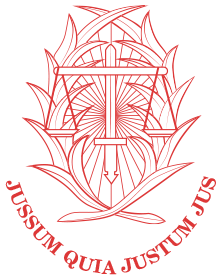RESUMO: O controle popular de políticas públicas proposto pela Lei Complementar 141/12 conta com a participação dos Conselhos de Saúde. A lei pressupõe que os membros desses órgãos possuem um mínimo de interesse pelo papel fiscalizatório e uma certa aptidão técnica, sem os quais pode ficar prejudicado o controle externo do Sistema Único de Saúde. O propósito do artigo é identificar se existem carências no funcionamento dos Conselhos capazes de comprometer seus objetivos institucionais, especialmente a fiscalização das receitas e dos gastos em saúde. Trata-se de trabalho de cunho exploratório, baseado em revisão bibliográfica e pesquisa de campo. Para esta, utilizou-se questionário estruturado que foi respondido por 259 conselheiros distribuídos em 17 cidades da região metropolitana de Campinas/SP. Os resultados sugerem que os Conselhos Municipais de Saúde da amostra necessitam de capacitação técnica, assim como de uma revisão quanto à representatividade dos usuários do SUS. Em conclusão, o artigo aponta para a importância da valorização do controle popular e da aplicação do art. 44 da LC 142/12, que garante dotação orçamentária voltada para o programa permanente de educação na saúde.
PALAVRAS-CHAVE: Cidadania. Democracia Participativa. Conselhos de Saúde.
ABSTRACT: The popular control of public policies proposed by Law 141/12 counts on the participation of the Health Councils. The law assumes that the members of these councils have a minimum interest in the supervisory role and a certain technical knowledge, without which the external control of the Public Health System can be decreased. The purpose of the article is to identify whether there are deficiencies in the functioning of the Councils capable of disturbing their institutional objectives, especially the inspection of Health´s Budget. This is an exploratory work, based on bibliographic review and empirical research. For this, a structured questionnaire was used, which was answered by 259 counselors distributed in 17 cities in the metropolitan region of Campinas / SP. The results suggest that the Municipal Health Councils need technical training, as well as a review as to the representativeness of SUS users. In conclusion, the article points to the importance of valuing popular control and the application of art. 44 of LC 142/12, which guarantees a budget allocation for the permanent health education program.
KEYWORDS: Citizenship. Participative Democracy. Health Councils.
Orcid: https://orcid.org/0000–0003-0279–7546
Submissão: 21/02/2020 | Aprovação: 07/03/2020
 Loading…
Loading…
